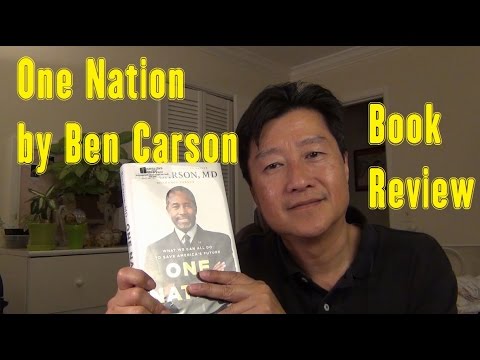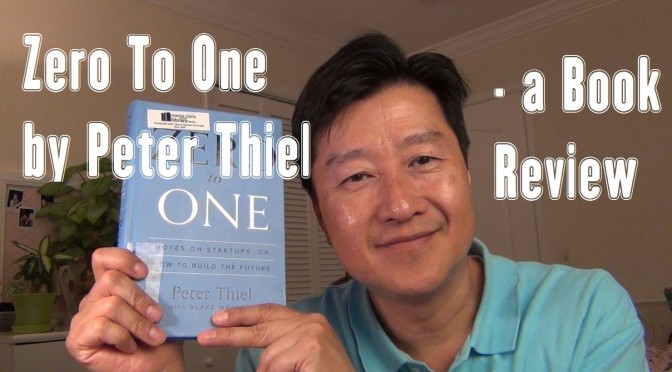Dr. Ben Carson came up with this book hoping to change this great nation for the better. He argued and prodded for the involvement of the citizens to do the best we can to save America’s future from the same fate of the Roman Empire, Great Britain, Egypt and Greece. I took away a few good points:
1. 10% flat tax rate just like Tithe. Dr. Carson is a religious man. He draws on the Bible stories/examples quite a lot. But 10% or some kind of the flat tax seems to make sense without the loopholes. Of course, this means a lot of CPA, accountants and bean counters will be out of their jobs.
2. Forced to read books and write reports since childhood for his illiterate Mom, he acquired great knowledge and wisdom. This is the reason I’m doing this kind of blog.
3. The action steps at the end of each chapter calls the readers to action.
4. Dr. Carson likes to quote proverbs. There got to be some other wise persons than King Solomon.
5. His self-funded health care spending account plan makes sense as it puts the people back in the driver seat. But it’s hard to implement.
6. I agreed with him the politic correctness has gone overboard. But there is fine line between overly political correct and being empathetic toward others.
Short Summary:
1. Saving for the Future: He outlines the reasons to save our nation in the areas of education, moral decline, national debt (Obamacare), lack of compromise, and other illnesses.
PART I Causes of Disunity And Decline
2. Political Correctness: Dr. Carson argues against strict political correctness because it stifle dialogue and restricts our freedom speech, which is fundamental for democracy. “We must learn to engage in civil discussion of our differences without becoming bitter enemies.”
3. Elitism: The elite class makes liberal policy to get the poor subservient to them instead of lifting them out of poverty. This can be solved by education.
4. Ignorance and Forgetfulness: We seem to forget the advises the wise people in the past like Martin Luther King, John Adams and the founding fathers of this country. The history is sometimes revised or selectively ignored to serve a certain purpose. Whether you agree or not, the author suggest we do not forget the past lessons.
5. Bigotry: The author touches on racism, religious bigotry, sexism, ageism, and homophobia. Dr. Carson’s answer is that we “adhere to the creed of ‘one nation, under God, indivisible with liberty and justice for all.”
6. No Winners in Political Fighting: The two parties are turning into opponents instead of teammates with different approaches to the same goal – “My way or highway” mentality. The favorite tactics are “demonization,” or cite an example and claim “this is what they would do to you,” demagoguery (false statements about their opponents), quoting out of context. His answer is to remove the party label on each candidate and leave it to the votes for decide on the merit of each candidate and debate the issues in a civil manner.
7. Enslaving Our Children – Don’t Sell The Future: He talks about the nation debts and how the young generation should participate more in the political process to change the course.
PART II: Solutions
8. Pushing Back: The author suggest that we push back peacefully and consistently against the “media bullies,” political bullies,” “academic bullies,” “Bullies in Business,” and “Unintentional Bullying.” Stand up to them and know who they really are.
9. Respectful Disagreement: pro-life vs. pro-choice, welfare, doctor vs. patients, the rich vs. the poor. Strategies for cordial disagreement: compromise, focus on the big picture, concur on what’s important to both parties.
10. The Art of Compromise: timing (setting a deadline), start with small issues. Opportunities for compromise are: gay marriage, national debt. Is there too much pride and arrogance?
11. Becoming Informed: Education is the foundation of our government and democracy. Get to know the record of your representatives instead of voting according to party affiliation. Don’t replace your brain with a computer. What an educated citizen knows: history, geography, household economics, finance, state and national representative, nutrition and disease management, traffic rules, math involving percentage, read at 8th-grade level. With education, you won’t be fooled by media. There is a long way to go on this.
12. Wisdom and Knowledge: The difference: knowledge is knowing the facts, wisdom is having the common sense. Have the humility to recognize that one does not know everything. It makes sense to me of the two points of healthcare reform: stop the rapid rise of costs (tort reform), make sure everyone has access to basic health care, restore the doctor-patient relationship and put patients back in charge of their own health. He advocated national health savings account (HSA), which motivates people to shop for the best care.
13. My Brother’s Keeper: This is a chapter discussing welfare, how to fund it in capitalism instead of turning into socialism. He advocates that we roll back welfare and have people (not government) helping people.
PART III: Who We Are
14. Without A Vision: Use the constitution as vision: to protect the rights of the people and not the rights of the government to rule the people. It restrains the natural tendencies of the government to expand (Utopian vision?). He advocates that we have a constitutional convention, revere it and vote for it all over or confirm it again.
15. Role Models: Pick for yourself a good role model (not Miley Cyrus), his Mom, teachers, the inventors, and some contemporary ones.
16. The Origin of Morality: We may not know of the origin of morality but we should know the sense of morality – a strong sense of right and wrong.
17. Take Courage: Ask yourselves the 4 questions: what’s the best/worst thing that happens if I do/don’t do it? This is his last call-to-action: be courageous.
Overall, this is a good book to understand where Dr. Carson stand now he’s running for the Presidency. Would I vote for him? He’s high on my list. At least we know where he stands but I don’t think he can out maneuver the professional politicians.




